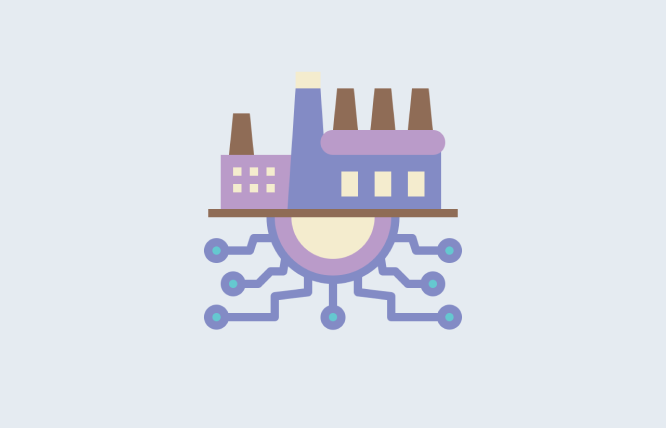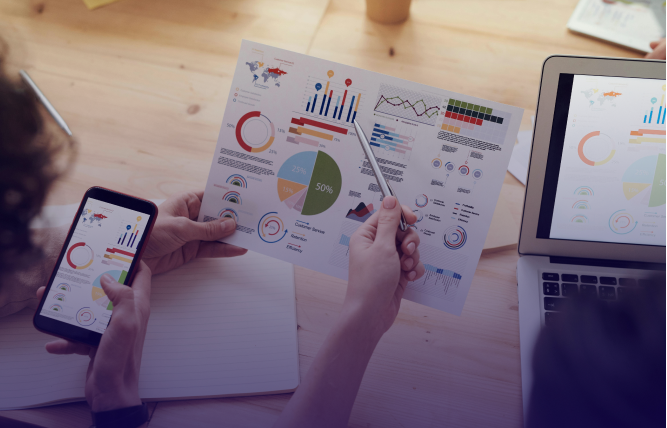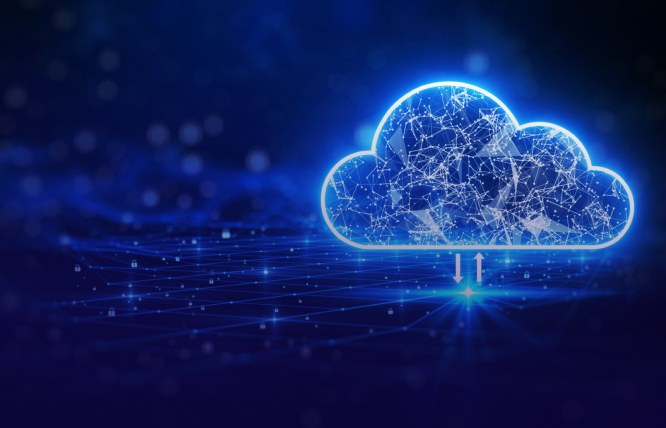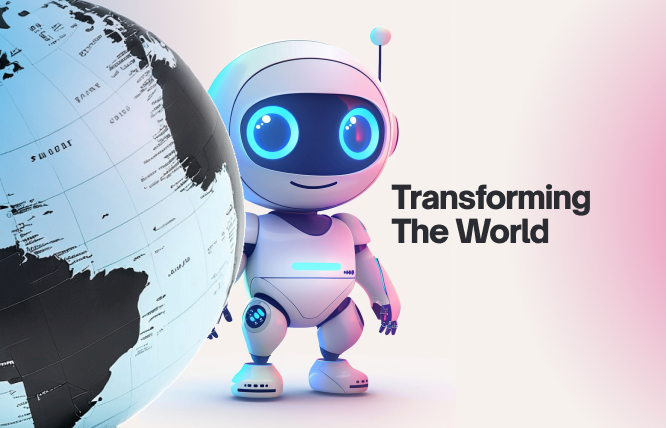Introduction
The future of the worldwide manufacturing industry is in Industrial Revolution 5.0. Read this blog to find out why.
There have been disruptive changes throughout the manufacturing industry ever since the first-ever industrial revolution. It is because of the overall expansion of technology that low-output methodologies have been transformed into large-case manufacturing processes, which offer results on a massive scale. It is also important to note that the recent technology-related advancements have properly solved a host of manufacturing industry challenges. This has been done with the aid of beneficial production methods, such as automation.
Today, we are witnessing a global landscape where economies and industries are aggressively stepping into the fifth industrial revolution. This is bound to offer a host of exciting opportunities for the entire manufacturing industry. At the same time, it will bring challenges of its own. Already, experts on the topic of industrial digital transformation have come to the conclusion that the fifth industrial revolution will look to achieve a lot of objectives, such as societal value and sustainability.
It must also be highlighted that the foundation of this latest industrial revolution will be on manufacturing processes and human-centeredness that agree with environmental goals. No doubt, the revolution is bound to shape the manufacturing industry’s future. Moreover, if you are interested in the topic of industrial digital transformation, then you should try to check out a host of other concepts, such as industrial automation solutions, enterprise resource planning (ERP), or perhaps the cloud POS system.
Industrial Revolution 5.0 – The Radical Industrial Digital Transformation
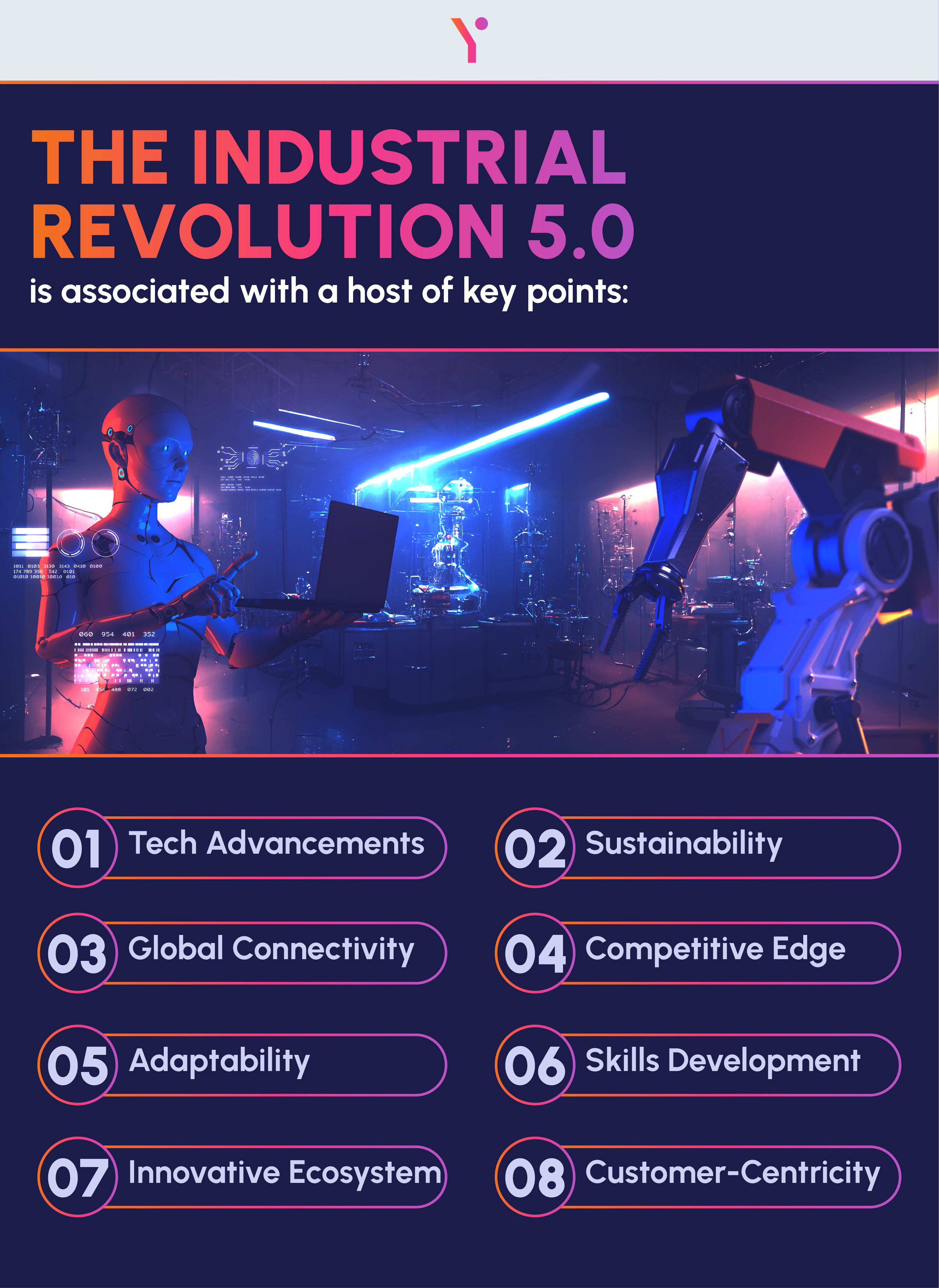
In simple words, the fifth industrial revolution seeks an industry that makes use of the combined power of machines and humans, thereby positively contributing to society. It also aims to take full note of the limitations of the globe.
This new revolution will emphasize societal value more than economic value. It will also look into the well-being of the human working elements. It is understood that it will offer a workflow where any group of humans will be able to perform their duties with highly advanced manufacturing technology. These technologies include AI-powered robots that are capable of conducting processes and production throughout industries. Some experts who are well-versed in the topic of industrial digital transformation have stated that there will be a clearly observable shift from robots to collaborative robots, or ‘cobots.’ There has been a great deal of debate regarding the ethical nature of such cobots, but that is a topic for another blog.
Industrial Revolution 5.0 – The Principles
There are a total of three principles on which this revolution is based. These are Resilience, Human-centeredness, and Sustainability. These principles shape the objectives and structures of the revolution. Let’s review these principles in some detail:
Sustainability
The adverse effects of a given industrial process on the worldwide environment have traditionally been neglected. There have been business leaders that have shown their concern in this regard, which was often showcased through their corporate social responsibility duties. Still, it is believed that such duties haven’t given the intended outcomes.
This is why the fifth industrial revolution puts a great deal of emphasis on a sustainable business strategy, as it calls for a drastic change in business strategies. This is for the purpose of incorporating sustainability. Until recently, corporations have been emphasizing either minimizing damage or greenwashing. Yet, the fact remains that a proper sustainability strategy will emphasize raising a company’s positive impact. This point is often highlighted by those who debate on industrial digital transformation topics.
Resilience
Rather recently, we witnessed how the global supply chain took a hit due to the Covid-19 event. The result of all of this was the need for a resilient and robust supply chain. This is where Industrial Revolution 5.0 comes into play as it wants to attain a highly resilient supply chain, which guarantees continuity of supplies during a crisis event.
It is well-understood that the future of individuals and even the entire world is uncertain. This is where resilience can assist industries so that they are able to better deal with challenges. There are many industry experts who argue that the entire manufacturing industry should optimize its already existing processes. This should be done for the sake of better-incorporating resilience. Also, firms should be more flexible and agile as this will pave the way for sustainable and stable performance, especially during a crisis event.
Human-Centric
With the human-centric approach, there is an emphasis on a transfer in perspective to assets from human resources. With this approach, organizations will look to serve the people and not the other way around. This is why, across the manufacturing sector, corporations should seek the appropriate technology that best aligns with their employees. Corporations are required to figure out how technology can be used to fulfil the workforce’s needs, and not the other way around.
Simply put, it is because of the human-centric approach that human beings will be put at the centre point of the entire production process. This will allow them to better emphasize those technologies that will go well as per their needs. Additionally, the approach will look to utilize employees instead of replacing them with robots or any other mechanical equipment. Here, robots are likely to conduct repetitive tasks, but even in this case, they would require human assistance for a host of problems.
Manufacturing Technologies for the New Industry
A host of experts who are looking into the industrial digital transformation have concluded that the following technologies will be immensely used in the Industrial Revolution 5.0:
- Robotics
- Artificial Intelligence
- Internet of Things (IoT)
- Machine Learning
- Augmented Reality
- Big Data
The Gains
The “Industry 5.0” will offer a plethora of gains to the manufacturing industry. Some of these are as follows:
- The integration of the human workforce and machines will raise a business’s efficiency, thereby offering more opportunities. Here, machines can be put to the task of repetitive work, whereas humans could be put in charge of duties that demand creative and problem-solving abilities.
- The customizability and flexibility attained by manufacturers with Industry 5.0 will assist in the achieving of processes that raise a company’s productivity.
- Industry 5.0 will present much better production quality, and this will be possible due to the collaboration between humans and machines.
- There will be an optimum utilization of resources alongside increased efficiency. The result will be a decrement in manufacturer expenses.
Concluding Remarks
It can be rightly stated that Industry 5.0 still needs to achieve proper momentum. This is because the majority of companies are still operating according to Industry 4.0 or previous frameworks. Regardless, it has been observed that 5.0 is slowly getting more and more traction. It is also a fact that companies throughout the world are getting to grasp the importance of sustainable business strategies. Therefore, it can be rightly stated that the future of Industry 5.0 looks bright. This point is actively highlighted by experts who are well-versed in industrial digital transformation matters.
Finally, no matter which industry you are associated with, if you demand some of the best software solutions, then contact Futurbyte today. This is a well-reputed software company that offers you some of the best software solutions that can take into account supply chain management (SCM) software or manufacturing execution systems.
Frequently Asked Questions
In simple terminologies, Industry 4.0 emphasized data exchange and automation, and it also replaced employees with machines. However, with Industry 5.0, there are manufacturing processes that seek to blend the power of the human workforce with machines.
There does not seem to be one main cause of the transfer to Industry 5.0. Instead, there are a host of things that have propelled this transfer process. These include the societal value of industries, wars, and the Covid-19 pandemic. Today, a great number of manufacturers understand that there needs to be a redefinition of the industry model. This means shifting to a robust and reliable industry model that offers a better degree of collaboration among technology and humans, sustainability, and resilience, all of which are considered to be the bedrock of Industry 5.0.
There are many industry experts who have come to the conclusion that Industry 5.0 will make use of Artificial Intelligence.
Have questions or feedback?
Get in touch with us and we‘l get back to you and help as soon as we can!
